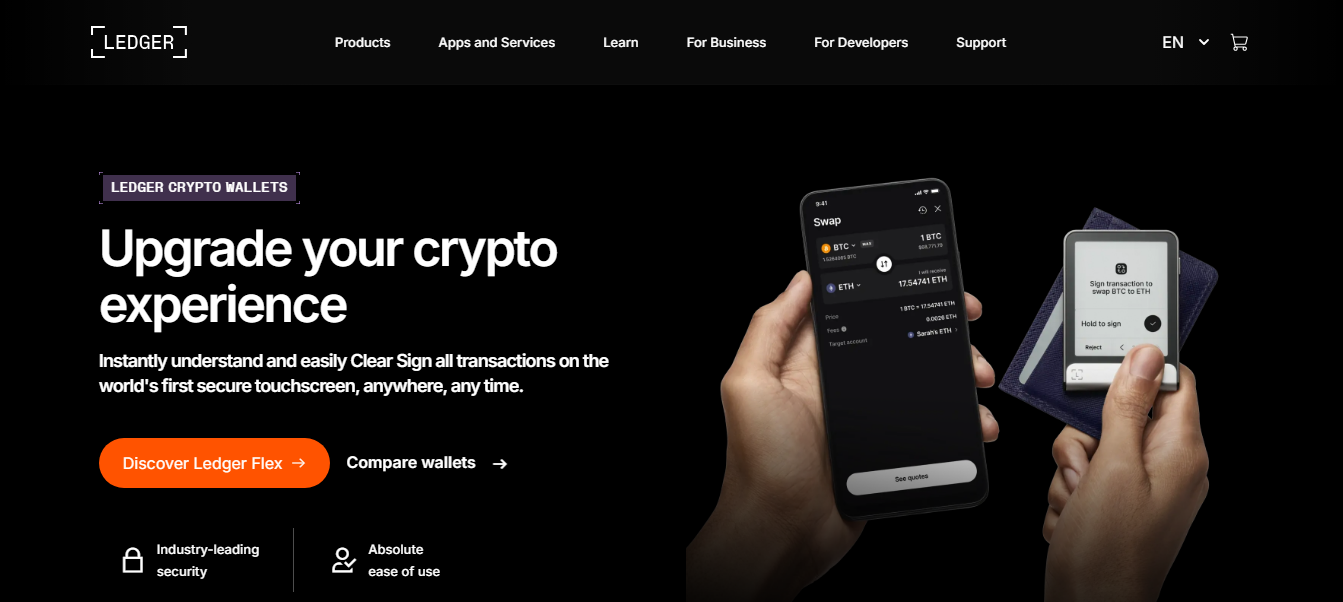Master Your Crypto Security with ledger.com/start
A complete beginner-to-intermediate guide to setting up your Ledger hardware wallet, safeguarding your crypto, and navigating the blockchain ecosystem confidently.
ledger.com/start
Why Ledger Matters in Your Crypto Journey
For many beginners, cryptocurrency can feel intimidating — volatile markets, digital wallets, private keys. Ledger hardware wallets offer an accessible bridge between complex crypto concepts and safe, practical usage. By following ledger.com/start, users ensure they maintain control over private keys, understand cold storage, and prevent common pitfalls that could lead to lost funds.
Step-by-Step Ledger Setup
Purchase your Ledger from an authorized seller and inspect the tamper-evident seal. Ensure the package is intact to avoid compromised devices.
Type ledger.com/start into your browser. Download Ledger Live, install it, and follow the interactive setup prompts to connect your device.
Set a strong PIN and write down your 24-word recovery phrase on paper or metal. Store it securely offline — this is your ultimate backup.
This setup ensures your crypto is protected with a combination of physical security, offline storage, and Ledger’s firmware protections.
Beginner Concepts: Hardware Wallets Explained
What is a Hardware Wallet?
A hardware wallet is a small, secure device that stores your private keys offline. Unlike software wallets connected to the internet, it isolates your keys from potential hackers. Think of it as a digital vault — access is granted only through your PIN and physical device confirmation.
Key Terms
- Seed Phrase: A 24-word mnemonic phrase that backs up your wallet.
- Private Key: The cryptographic code that proves ownership of crypto assets.
- Cold Storage: Storing crypto offline to prevent unauthorized access.
- Transaction Signing: Approving transactions directly on your hardware wallet.
- Firmware: Device software — always keep it updated to patch vulnerabilities.
Intermediate Security Practices
Recommended Practices
- Keep multiple secure copies of your seed phrase offline.
- Enable passphrase protection for additional security layers.
- Update firmware only from Ledger Live and verify each release.
- Use hardware wallets for long-term holdings; software wallets for active trading.
Common Mistakes to Avoid
- Never type your seed phrase online or into apps.
- Do not buy second-hand devices without resetting.
- Never store backups in cloud services or photos on your phone.
- Avoid interacting with unverified third-party apps claiming to be support.
A Real-World Example
Sophia kept her crypto mostly on exchanges. After reading this guide, she moved long-term holdings to a Ledger. Months later, one exchange was hacked, but Sophia’s funds were safe because she practiced secure cold storage and followed setup protocols from ledger.com/start.
Advanced Features: Passphrases & Multi-Account
Using a passphrase (optional 25th word) can create a hidden account, adding extra security. Multi-account setups let you manage separate strategies within one Ledger device. Ledger supports interoperability with many blockchains, DeFi apps, staking platforms, and NFTs — always confirm transactions on the device itself.
Frequently Asked Questions
Q: Is ledger.com/start the official setup page?
A: Yes. Always type it manually to download Ledger Live and access official instructions.
Q: Can I recover funds if I lose my device?
A: Yes, with your 24-word recovery phrase (and passphrase if used).
Q: Should I use a passphrase?
A: Optional. Adds security but must be remembered or funds are permanently inaccessible.
Q: How often should I update firmware?
A: Regularly, via Ledger Live, always verifying release notes.
Conclusion
By starting at ledger.com/start, following the setup steps, and practicing secure habits, you gain control over your crypto assets while minimizing risk. Layer beginner concepts with mid-level strategies like passphrases, multi-account management, and device verification. Protect your seed phrase, verify each transaction, and your Ledger experience will ensure safe, confident crypto management.
